Share
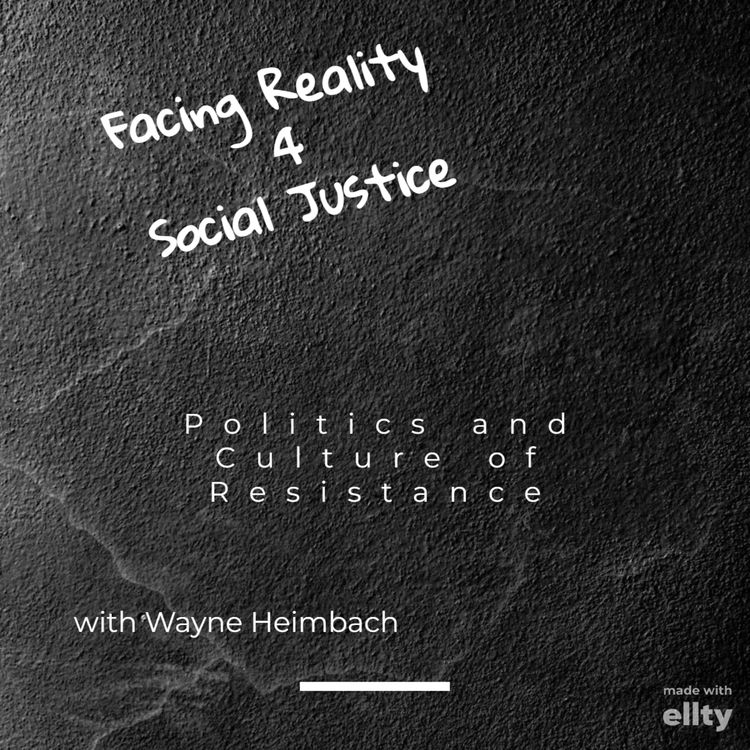
Facing Reality 4 Social Justice
Labor for Palestine - an interview
The official labor movement in the United States has traditionally been a friend of the state of Israel. But things are starting to change. A new generation of labor leaders and the horrendous attacks on the people and geography of Gaza have started to change the relationship.
In today's episode of Facing Reality 4 Social Justice we talk to Sophia Gurule, a spokesperson for Labor for Palestine, a rank-and-file group that has been working on its issues since 2004. She is a member of the United Auto Workers Union and a member of UAW Labor for Palestine and New York Labor for Palestine.
After the conversation with Sophia, we'll have a short excerpt from an 18-hour radio series produced by a coalition called Radio Free Palestine 2008 - Commemorating 60 Years of the Palestinian Nakba. That will be followed by a song - The Unknown War Criminal.
More episodes
View all episodes

26. Labor-State Department-Unholy Alliance
51:12||Season 1, Ep. 26International union solidarity is an important part of the labor movement. There are numerous examples of working people and their organizations supporting working people in other parts of the world fighting the good fight. However, since at least 1900 the leadership if the American Federation of Labor has had an unholy relationship with the U.S. government in international affairs. This top-down approach to solidarity has led the AFL, and the AFL-CIO after the 1955 merger, to be often more in sympathy with dictators, corrupt union bosses and reactionary politics rather to the needs of rank-and-file workers.Out guest today, Jeff Schuhrke, does an excellent job of describing this top-down approach in his book Blue Collar Empire – the Untold Story of U.S. Labor’s Global Anticommunist Crusade. Jeff is a labor historian and Assistant Professor at the Harry Van Arsdale Jr. School of Labor Studies, SUNY Empire State University. The book is published by Verso Press. After the interview we will have musical examples of bottom-up labor solidarity during the 1930s Spanish Civil War. We will have songs from the International Brigades sections from Germany, Italy and the United States. Hope you can stick around.
25. Art. Politics. Carbondale.
43:37||Season 1, Ep. 25Tish and Adam Turl are both from central and southern Illinois and connected to Southern Illinois University in Carbondale. Tish is working on a Masters of Fine Arts at SIU and Adam has a MFA from the Sam Fox School of Design and Visual Art in St. Louis. I’m glad you are able to join me today in Facing Reality 4 Social Justice as we talk to them about how they are using their imagination and their art and their poetry to tear down walls of ordinary perception. They are part of a group that uses a journal – Locust Review – and a podcast – Locust Radio – and a space – Born Again Labor Museum – all of these to challenge us to think about things differently about our lives, our future and our past. See their work at https://www.locustreview.com/.Along the way we'll have some poetry and music as well.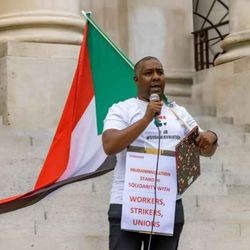
24. Sudan in Crisis III
22:46||Season 1, Ep. 24This is the last of a three part interview with Sudanese trade unionist - now in Britain - Khalid Sudahmed. He is a member of MENA Solidarity Network which covers issues of political and economic struggle throughout the Middle East North Africa region. More information on his organization can be found at the website https://menasolidaritynetwork.com. In this interview, produced by Lennox Apudo for Hudson Mohawk Magazine Radio, Khalid Sudahmed discusses the role of women in the Sudanese communities who are protecting those communities during this very difficult time when the country is ravaged by waring armies. They are also part of the building of resistance committees throughout their communities as well.After the interview, we will hear some traditional Sudanese music.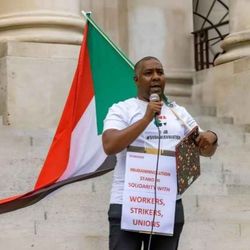
23. Sudan in Crisis II
21:47||Season 1, Ep. 23This is the second of a three part interview with Khalid Sidahmed, a leading member of the MENA Solidarity Network. It's website is menasolidaritynetwork.com. The interview was originally produced and broadcast by Hudson Mohawk Magazine Radio in Troy, New York.In this episode, Sidahmed discusses the international players who have interfered in the Sudanese situation - why are they doing this and what do they gain. It's a sad story that has led to a major crisis of monumental proportions for the Sudanese people.After the interview we will have two musical pieces of traditional Sudanese music.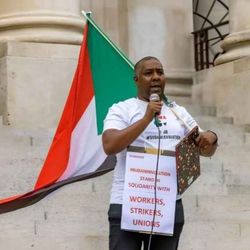
22. Sudan in Crisis I
19:46||Season 1, Ep. 22This is the first of three parts of an interview with Khalid Sidahmed on Hudson Mohawk Magazine Radio in Troy, New York at WOOC 105.3 FM. Khalid Sidahmed is from the MENA (Middle East North Africa) Solidarity Network. Here he gives us a radical perspective on the crisis in Sudan.Stick around after the interview for some Sudanese music which we took from Internet Archive.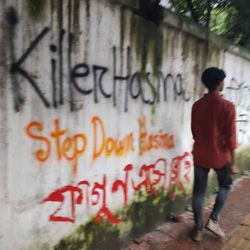
21. Bangladesh - Questions of Direction
34:04||Season 1, Ep. 21This is part 2 of a conversation with Nagesh Rao on the ongoing political crisis in Bangladesh. The Prime Minister has fled the country and a Board of Advisors is governing the country as various factions vie for support and try to find direction. This is a complicated and potentially very unstable situation. After the conversation, we will hear a song formed during the student rebellion that has become a national voice of the struggle for freedom. Raised Voice Bangladesh is its name and the refrain that remembers the deaths during the struggle and looks to a new beginning.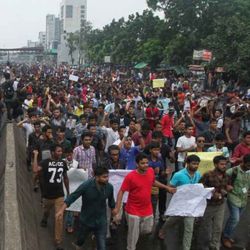
20. Bangladesh - A Revolution Starts
34:35||Season 1, Ep. 20Facing Reality 4 Social Justice interviews Nagesh Rao on the extraordinary flight from power of Bangladesh Prime Minister, Sheikh Hasina. Rao is from India and a professor of English who taught in the U.S. for several years before moving to Dhaka, Bangladesh. He will help us understand how student demonstrations exposed the political weakness of Hasina's long term rule in government. This episode is the first of two on this issue. Rao was also interviewed by Tempestmag.org in their September 13 edition - which is where I originally saw his insights. The interview will be followed by a one minute sound piece on the demonstrations that led to Hasina being forced from power - and from the country.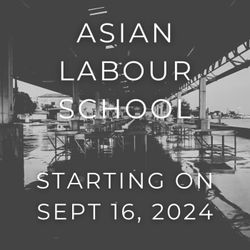
19. #AsianLabourReview Starts a School
40:44||Season 1, Ep. 19The Asian Labour Review has done excellent work discussing the situation of working people in Asia - from the ground up. Their podcast series - Continent of Resistance (https://rss.com/podcasts/continentofresistance/) - gives us the sounds of organizing and struggle. Now they move to work with people to develop a program of training and learning to build a network of communicators who can build on this beginning.This episode of Facing Reality 4 Social Justice talks to Kevin Lin, Managing Editor of Asian Labour Review, on why and how the Review is taking this step to develop a school for people to more deeply understand the conditions of working people in Asia and how to communicate this story.The interview with Kevin will be followed by a short poem from a member of the Myanmar Rohingya community now living in Bangladesh as a refugee.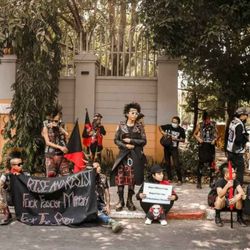
18. Punk Rock Myanmar
44:25||Season 1, Ep. 18This episode of Facing Reality 4 Social Justice is a wide-ranging interview with Kyaw Kyaw, a guitarist and lyricist and member of the Myanmar Punk Rock group, Rebel Riot. Their music is part of the culture of resistance to the country's military government as we'll hear with three selections from their newly released album - to...Dear Comrade. You can find their music at https://bandcamp.com. Rebel Riot is also part of an international punk rock network using music as a beacon of anti-establishment thought - most often in a progressive direction.